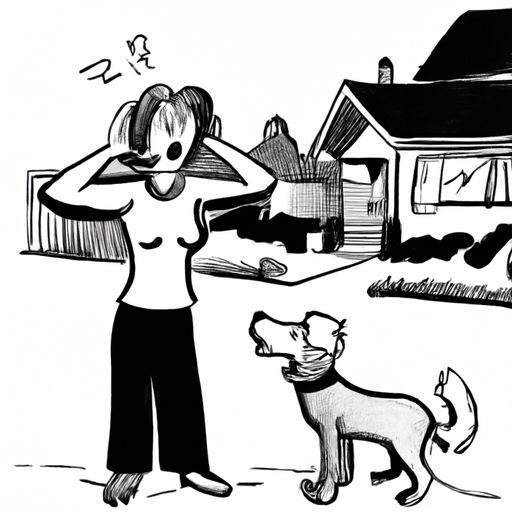A dog’s bark can be music to an owner’s ears, but when the barking becomes incessant, it can be an issue. As a caregiver, understanding why your canine companion is barking and how to manage it can make your life, and your dog’s, much more peaceful. Here’s a comprehensive guide on how to stop your dog from barking.
H2-1: Understanding Why Dogs Bark
Dogs bark for a variety of reasons:
- Attention-seeking: Dogs may bark when they want something, like food, a toy, or your attention.
- Boredom: Dogs often bark when they’re bored or lonely.
- Fear: A frightened dog may bark at the object that’s scaring them.
- Territoriality: Dogs often bark to protect their territory.
- Separation anxiety: Dogs might bark excessively when left alone.
H2-2: Training Methods to Control Barking
Training is crucial to manage barking. Here are a few methods:
- Teach the “Quiet” command: Start by saying “Quiet” when your dog is barking. Once they stop, reward them with a treat.
- Ignore the barking: Don’t give your dog attention until they stop barking.
- Distract them: Give your dog a toy or start a game when they start barking.
H2-3: Ensuring Proper Exercise and Mental Stimulation
A tired dog is a quiet dog. Make sure your dog gets sufficient physical exercise and mental stimulation every day. This can include walks, playtime, training sessions, or puzzle toys.
| Activities | Duration |
|---|---|
| Walks | 30-60 minutes |
| Playtime | 15-30 minutes |
| Training Sessions | 10-20 minutes |
| Puzzle Toys | 15-30 minutes |
H2-4: Creating a Calm Environment
Try to minimize the triggers that cause your dog to bark. This might include keeping curtains shut if outside activity triggers barking, providing a quiet and secure space for your dog to relax, or using calming products like pheromone diffusers.
H2-5: When to Seek Professional Help
If your dog’s barking becomes problematic and you’re unable to manage it through training, it might be time to seek help from a professional dog trainer or a veterinary behaviorist.
H2-6: Medications and Supplements
In some cases, medications or supplements might be recommended to help manage excessive barking, especially if it’s caused by anxiety. Always consult with your vet before starting any new medication or supplement.
H2-7: What Not to Do
Avoid these common mistakes:
- Don’t yell: Yelling at your dog can make the barking worse, as they might think you’re joining in.
- Don’t use bark collars: These can cause physical discomfort and stress, leading to more behavioral issues.
H2-8: Patience is Key
Remember, training takes time and consistency. Be patient and consistent in your approach, and celebrate small successes.
FAQ
Q1: How long will it take to stop my dog from barking excessively?
- It depends on the cause of the barking and the dog’s individual personality. With consistent training, you might see improvement within a few weeks.
Q2: Should I use a bark collar to stop my dog from barking?
- Bark collars can cause stress and physical discomfort. It’s better to address the root cause of the barking and use positive reinforcement methods.
Q3: My dog barks at everything. What can I do?
- Try to identify the triggers and minimize them. Provide plenty of exercise and mental stimulation. If necessary, seek help from a professional.
Q4: Can medication help stop my dog’s excessive barking?
- In some cases, medication might be recommended, especially if the barking is caused by anxiety. Always consult with your vet.
Remember, every dog is unique. What works for one might not work for another. It’s important to understand your dog’s needs and be patient as they learn.
Happy training!



